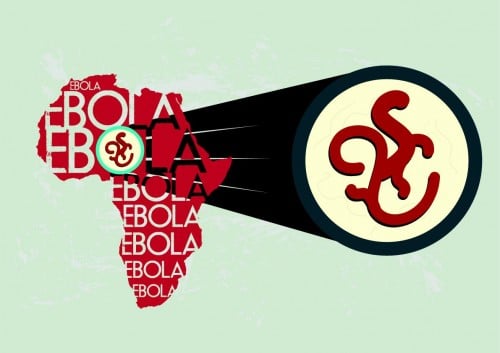This is what the director of the World Health Organization, Margaret Chan, said today (August 2), calling on the presidents of Guinea, Liberia, Sierra Leone and the Ivory Coast to meet and start coordinating the fight against the epidemic

At Emory Hospital in Atlanta, Georgia, two American aid workers who contracted Ebola while trying to help patients there in the largest outbreak in the disease's 40-year history are now hospitalized. The years were flown in a special plane prepared to transport them in isolation.
Earlier this week, a Nigerian citizen died in the UK after being discharged from hospital in Birmingham, and a British citizen was hospitalized on suspicion of contracting the disease.
The World Health Organization says that the epidemic is breaking out faster than the ability of medical personnel to contain it. According to Chan, since the beginning of the outbreak, there have been 729 deaths among the 1,323 carriers who contracted it. The number may be much higher because many cases go unreported. Chang urges the presidents of Guinea, Liberia, Sierra Leone and the Ivory Coast to meet in Guyana's capital, Gonakari, to step up efforts to avoid catastrophic consequences. The World Health Organization also invested 100 million dollars to fight the epidemic. The World Health Organization is considering requiring the governments of the countries where the virus is raging to limit the movement of residents and public gatherings, and to use the security forces to enforce this.
"The outbreak is happening faster than the efforts to stop it. If the situation continues and worsens, the consequences could be disastrous in terms of loss of life but also in disruption to the socioeconomic fabric and a high risk of spreading to other countries.
However, it is possible to avoid infection if you avoid contact with the patient's body fluids - blood, urine, feces, vomit, saliva or sweat. According to Chan, it is necessary to prevent the custom spread by traditional healers who offer to treat the sick at home, and she also suggests changing some of the traditional burial customs.
The Ebola disease first broke out in 1976 in two simultaneous outbreaks in Nazaré in Sudan and Biamboko in the Democratic Republic of the Congo. The second place is a village located near the Ebola River, which gave the disease its name.
Ebola virus disease (EVD) is caused by a virus bearing that name and is a severe and often fatal disease in humans. In previous Ebola outbreaks, mortality rates of up to 90% were recorded. Ebola outbreaks first occur in remote villages in central and western Africa adjacent to the tropical rainforests.
The virus is transmitted to humans from wild animals and is spread to the human population through direct contact with the sick. The fruit bats of the Pteropodidae family are considered the natural hosts of the Ebola virus.
Critically ill patients require massive treatment and support, treatments and vaccines for use in humans and animals are not currently available, although several pharmaceutical companies claim that such a vaccine is within reach.
Map of the spread of the Ebola epidemic in Africa. Data - World Health Organization. Editing: Avi Blizovsky
For a previous article on the subject from April 2014: Ebola outbreak in Africa - claimed the lives of 84 people and is difficult to stop

7 תגובות
point
So I take it you hate people like Edward Jenner and Albert Sabin? Or do you just like to rant about those who have tripled life expectancy in the world?
Miracles, the hateful reaction about humans experimenting on humans.
point. There is no preventing the virus from being spread by aliens who want to colonize the Earth for reasons reserved to them.
point
There is no sane reason for such a reaction from anyone. Forgive me, but this is a hateful response to a person.
There is no preventing the virus from being spread by human medical agents, for reasons reserved to them.